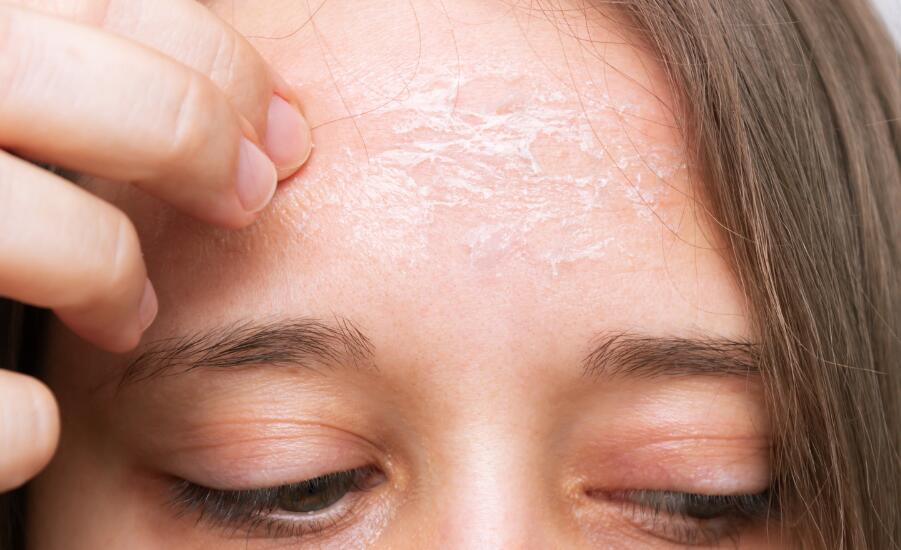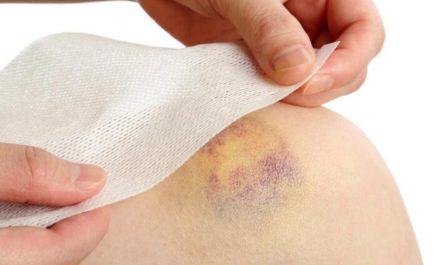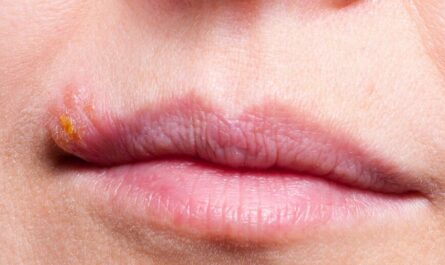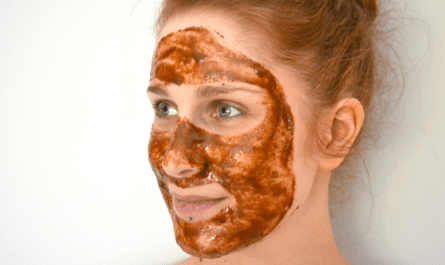Having dry, flaky skin on your face can be a frustrating and even embarrassing experience. Not only does it look unsightly, but it can also feel uncomfortable. Dry skin usually occurs when your skin lacks moisture. It will cause the outer layer to become rough, scaly, and cracked. Fortunately, there are some effective treatments to help you get rid of dry flaky skin. In this article, we’ll explore the top 10 effective remedies to get dry flaky skin off the face.
Common Causes of Dry, Flaky Skin on Face
Before we dive into the solutions, it’s crucial to understand the underlying causes of dry, flaky skin on the face.
- Environmental factors: Exposure to harsh weather conditions, such as cold temperatures, low humidity, strong winds, and excessive sun exposure, can strip your skin of its natural oils. This will lead to dryness and flakiness.
- Aging: As we age, our skin’s ability to produce and retain moisture decreases. This makes it more prone to dryness and flakiness.
- Dehydration: Not drinking enough water can lead to dehydration. This can manifest as dry, flaky skin on the face and other parts of the body.
- Harsh skincare products: Using skincare products that contain drying ingredients, such as alcohol, fragrances, and certain preservatives, can strip your skin of its natural oils. This will cause dryness and flakiness.
- Medical conditions: Certain medical conditions, such as eczema, psoriasis, thyroid disorders, and diabetes, can disrupt the skin’s natural moisture balance. This will contribute to dry, flaky skin on the face.
- Medications: Some medications, including diuretics, retinoids, and certain acne treatments, can have drying effects on the skin as a side effect.
- Poor diet: A diet lacking essential fatty acids, vitamins, and minerals can impair the skin’s ability to maintain proper hydration. This will cause dryness and flakiness.

10 Effective Ways to Get Dry Flaky Skin Off the Face
1. Physical Exfoliation
One of the most effective ways to remove dry, flaky skin from your face is through gentle exfoliation. Exfoliation helps to slough off the dead, dry skin cells, revealing the smoother, more radiant skin underneath.
Physical exfoliation involves using a gentle scrub or tool to manually remove the dry, flaky skin from your face. Here are some effective physical exfoliation methods:
- Washcloth or soft-bristle brush: Gently rub a damp washcloth or soft-bristle brush in circular motions over your face to help loosen and remove dry skin. Be careful not to apply too much pressure, as this can cause irritation and further dryness.
- Natural sponge: A natural sponge, such as a konjac sponge or a sea sponge, can be an excellent tool for gentle exfoliation. Wet the sponge and use small circular motions to slough off dead skin cells. The soft, porous texture of these sponges helps to gently buff away flakes.
- Homemade scrubs: You can create your own gentle scrub by mixing ingredients like sugar, honey, olive oil, or coconut oil. The sugar provides gentle exfoliation, while the honey and oils help to nourish and hydrate the skin. Gently massage the scrub onto your face using circular motions, then rinse with lukewarm water.
When using physical exfoliants, it’s essential to be gentle and avoid over-scrubbing. This can cause irritation, redness, and further dryness.
2. Chemical Exfoliation
Chemical exfoliation involves using products that contain alpha-hydroxy acids (AHAs) or beta-hydroxy acids (BHAs) to dissolve the bonds that hold dead skin cells. This allows them to slough off more easily. Here are some effective chemical exfoliation options:
- AHA products: Look for products containing lactic acid, glycolic acid, or citric acid. These acids are gentle and effective for removing dry, flaky skin. Start with a lower concentration (around 5-10%) and gradually increase as your skin adjusts to avoid irritation.
- BHA products: Salicylic acid, a type of BHA, is particularly effective for those with oily or acne-prone skin, as it can penetrate deep into the pores to remove dead skin cells and unclog pores. However, it can be drying, so use it sparingly if you have dry skin.
- Enzyme exfoliants: Enzyme exfoliants, such as those containing pumpkin, papaya, or pineapple enzymes, can gently dissolve dead skin cells without irritating them. These are often a good option for those with sensitive skin.
When using chemical exfoliants, it’s essential to follow the instructions carefully and introduce them gradually. Start with once or twice a week and gradually increase frequency as your skin adjusts. Always follow up with a moisturizer and sunscreen, as chemical exfoliants can make your skin more sensitive to the sun.
3. Hydration
While exfoliation is crucial for removing dry, flaky skin, it’s equally important to replenish your skin’s moisture levels. Dehydrated skin is more prone to flaking, cracking, and other signs of dryness. So it’s essential to incorporate hydrating products and practices into your skincare routine.
- Moisturize regularly: After cleansing and exfoliating, apply a rich, fragrance-free moisturizer to your face. Look for moisturizers that contain hydrating ingredients like hyaluronic acid, glycerin, ceramides, and plant-based oils like argan, jojoba, or marula oil. These ingredients help to attract and retain moisture in the skin, keeping it plump and supple.
- Use a humidifier: Dry indoor air can contribute to dry, flaky skin. Use a humidifier in your home or office to add moisture to the air and prevent your skin from drying out. Aim for a humidity level between 30-50% for optimal skin health.
- Drink plenty of water: Staying hydrated from the inside out is essential for maintaining healthy, moisturized skin. Aim to drink at least eight glasses of water per day, and consider incorporating hydrating beverages like herbal teas and coconut water.
- Incorporate hydrating face masks: Once or twice a week, treat your skin with a hydrating face mask. Look for masks that contain ingredients like honey, aloe vera, hyaluronic acid, and plant-based oils. Leave the mask on for 10-20 minutes, then rinse with lukewarm water and follow up with a moisturizer.
- Use a facial mist: Facial mists can provide an instant boost of hydration throughout the day. Look for mists that contain hydrating ingredients like rose water, glycerin, or thermal spring water. Spritz them onto your face as needed to refresh and revive dry, flaky skin.

4. Natural Remedies
In addition to traditional skincare products, several natural remedies can help nourish and hydrate dry, flaky skin. These remedies are often gentle, affordable, and free from harsh chemicals. This makes them a great option for those with sensitive skin or a preference for natural products.
- Aloe vera gel: Aloe vera is a natural moisturizer that can help soothe and hydrate dry, flaky skin. Apply pure aloe vera gel directly to your face after cleansing and allow it to absorb fully. Aloe vera is rich in vitamins, minerals, and antioxidants that can help to nourish and protect the skin.
- Honey mask: Honey is a natural humectant, meaning it helps attract and retain moisture in the skin. Create a simple honey mask by applying a thin layer of raw, unprocessed honey to your face and leaving it on for 15-20 minutes before rinsing. Honey is also a natural antibacterial and anti-inflammatory, making it a great choice for those with sensitive or acne-prone skin.
- Avocado mask: Mash up a ripe avocado and apply it as a hydrating mask. Avocados are rich in fatty acids and vitamins that can help nourish and moisturize dry skin. Leave the mask on for 10-15 minutes, then rinse with lukewarm water.
- Coconut oil: Coconut oil is a versatile natural moisturizer that can help hydrate and protect dry, flaky skin. Use it as a moisturizer, or overnight mask, or add a few drops to your regular moisturizer for an extra boost of hydration. Coconut oil is rich in fatty acids and has antimicrobial properties, making it a great choice for those with dry, irritated skin.
- Rosewater toner: Rosewater is a gentle, natural toner that can help hydrate and soothe dry, irritated skin. After cleansing, spritz your face with rosewater and allow it to absorb before applying your moisturizer. Rosewater is rich in antioxidants and has anti-inflammatory properties. This makes it a great choice for those with sensitive skin.
When using natural remedies, it’s important to patch-test them first to ensure you don’t have any adverse reactions or allergies.
5. Gentle Cleansing
Harsh cleansers can strip your skin of its natural oils, exacerbating dryness and flakiness. To avoid this, it’s essential to use a gentle, non-foaming cleanser that won’t disrupt your skin’s moisture barrier. Look for cleansers that contain hydrating ingredients like glycerin, ceramides, or plant-based oils.
When cleansing, avoid using hot water, as this can further dry out your skin. Instead, opt for lukewarm water and gently massage the cleanser into your skin using circular motions. Avoid scrubbing too vigorously, as this can cause irritation and further dryness.
After cleansing, pat your skin dry with a soft towel and immediately apply a moisturizer to help lock in hydration. Choosing the right cleanser and using proper cleansing techniques can help prevent further dryness and flakiness.
6. Protect Your Skin from Environmental Factors
Environmental factors like cold temperatures, low humidity, and strong winds can contribute to dry, flaky skin on your face. These conditions can strip your skin of its natural oils and moisture. This causes it to feel tight, rough, and dehydrated.
To protect your skin, wear protective clothing like scarves, hats, and gloves when venturing out in harsh weather conditions. This can help create a barrier between your skin and the elements, preventing moisture loss.
Additionally, use a moisturizing sunscreen with an SPF of 30 or higher, even on cloudy days. The sun’s UV rays can further dry out and damage your skin, exacerbating dryness and flakiness.
7. Adjust Your Skincare Routine Seasonally
Your skincare routine may need to be adjusted based on the season and environmental conditions. During the colder, drier months, you may need to increase your exfoliation and hydration efforts. While in warmer, more humid conditions, you may be able to scale back slightly.
In the winter, consider incorporating richer, more nourishing moisturizers and facial oils into your routine to help combat the drying effects of indoor heating and cold outdoor temperatures. In the summer, lighter, water-based moisturizers and serums may be more suitable for your skin’s needs.

8. Evaluate Your Diet
A diet rich in essential fatty acids, vitamins, and minerals can help support healthy skin function and hydration. Consider incorporating foods like fatty fish (such as salmon and mackerel), avocados, nuts, seeds, and leafy greens into your diet.
Fatty acids, like those found in fish and avocados, help to nourish and strengthen the skin’s protective barrier. Nuts and seeds are rich in vitamin E. It is a powerful antioxidant that can help protect the skin from environmental stressors.
Additionally, leafy greens like spinach and kale are packed with vitamins A, C, and K, which are essential for healthy skin cell turnover. Adequate hydration is also crucial for maintaining healthy skin.
9. Avoid Harsh Skincare Products
Certain skincare products, such as those containing alcohol, fragrances, or retinoids, can be drying and irritating to the skin. These ingredients can strip your skin of its natural oils, disrupt its protective barrier, and exacerbate dryness and flakiness.
Steer clear of these harsh products and opt for gentle, fragrance-free formulas designed for sensitive skin. Look for moisturizers and cleansers that are labeled as “non-comedogenic” and “hypoallergenic,”
When introducing new skincare products, be sure to patch-test them first to ensure that you don’t have an adverse reaction. Apply a small amount of the product to your inner forearm and wait 24-48 hours to see if any redness, itching, or irritation develops.
10. Professional Treatments for Dry Flaky Skin on the Face
In severe cases, dry, flaky skin on the face may require professional intervention. Here are some professional treatments that can help address severe or persistent dryness and flakiness:
- Facial treatments: Professional facial treatments, such as hydrating facials, chemical peels, and microdermabrasion, can help remove dry, flaky skin and improve overall skin hydration and texture.
- Laser treatments: In severe cases, laser treatments like fractional CO2 laser resurfacing can be used to remove the outermost layer of dry, flaky skin and stimulate the production of new, healthy skin cells.
- Phototherapy: Phototherapy, also known as light therapy, can be used to treat certain skin conditions that contribute to dryness and flakiness, such as psoriasis or eczema. This treatment involves exposing the skin to specific wavelengths of light to help reduce inflammation and promote healing.
- Prescription medications: In some cases, a dermatologist may prescribe oral or topical medications to help address the underlying causes of dry, flaky skin. These may include retinoids, immunosuppressants, or biologics, depending on the specific condition being treated.
It’s important to note that professional treatments can be costly and may require multiple sessions or ongoing maintenance. However, for those with severe or persistent dry, flaky skin that has not responded to over-the-counter treatments, these professional interventions can be highly effective.
Conclusion
Dry, flaky skin on the face can be a frustrating and uncomfortable condition, but it can be effectively addressed with the right approach. Remember, consistency is key, and it may take some trial and error to find the products, routines, and remedies that work best for you. Be patient and persistent, and don’t hesitate to seek professional help from a dermatologist if your dry, flaky skin persists or worsens.






